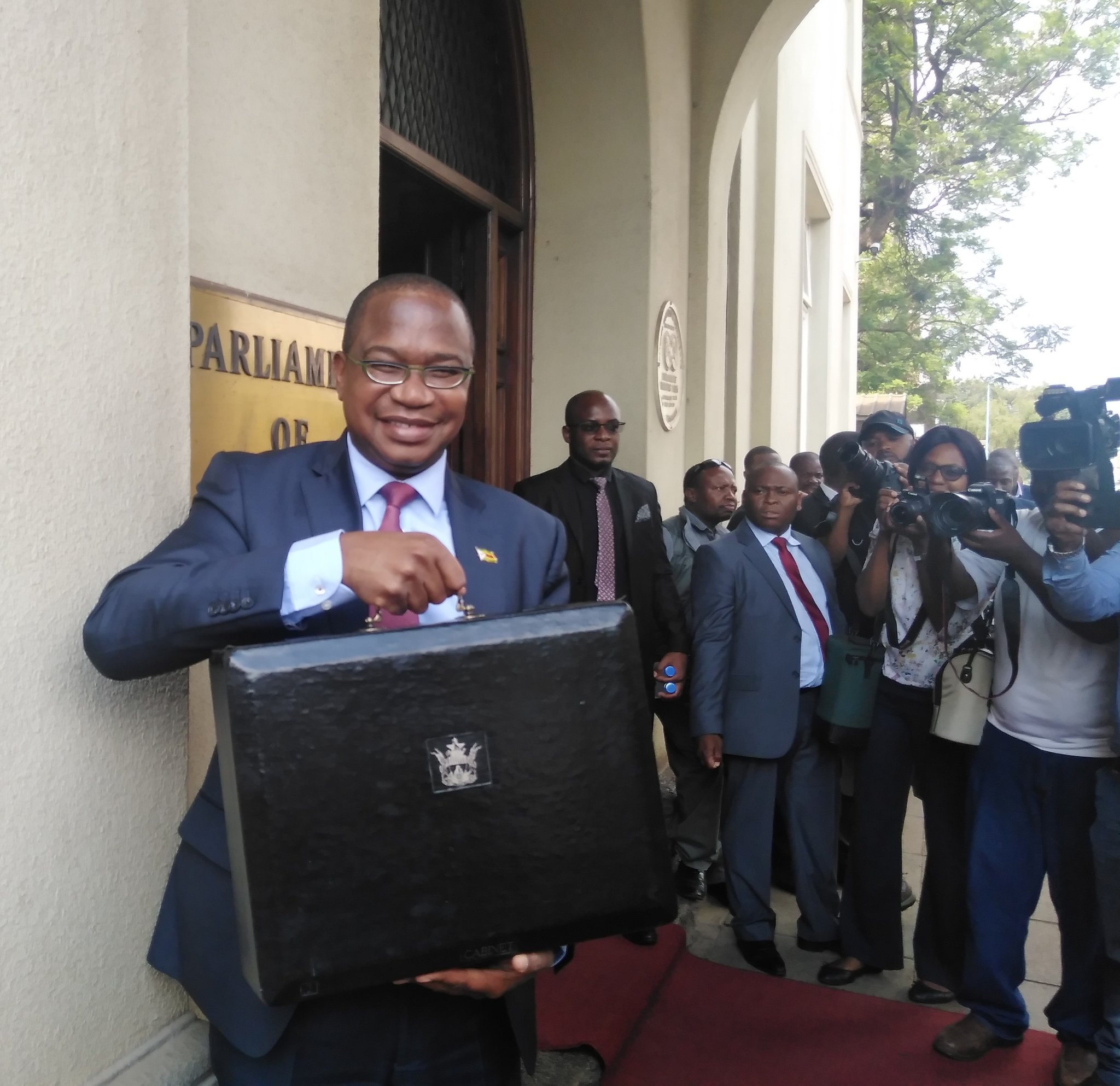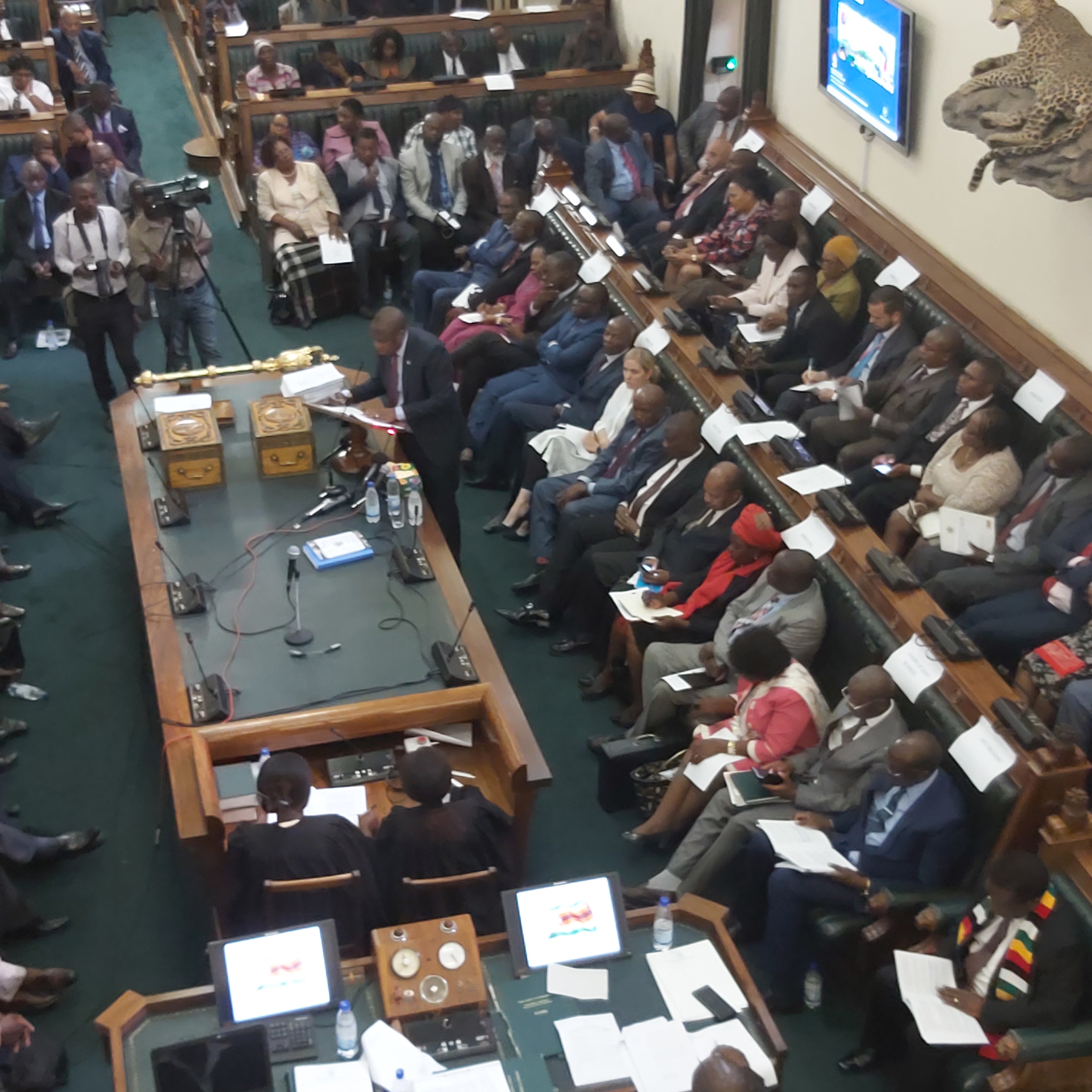Zim economy to grow by 3% – Finance Minister
Share

Harare, (New Ziana)- Zimbabwe’s economy is projected to grow by three percent in 2020, recovering from a -6.5 percent contraction this year on the back of a cocktail of new tax and other incentives expected to spur productivity, Finance and Economic Development Minister, Mthuli Ncube said on Thursday.
Presenting the 2020 National Budget in the National Assembly, Prof Ncube said Zimbabwe was now moving out of the austerity phase of economic reforms of the past year and half, to the growth mode.
The budget was themed, “Gearing for higher productivity, growth and
Job creation.”
“The 2020 National Budget marks the transition from austerity to a growth stimulation and employment generation era. Strong emphasis is now on reviving key sectors of the economy through promotion of production oriented investment and productivity, without losing focus on fiscal responsibility,” he said.
Total expenditure for the coming year was set at $63.6 billion, with
revenues expected at $58.6 billion.
To support the target areas of growth and productivity, job creation and competitiveness, Prof Ncube unveiled a cocktail of incentives across all major economic sectors.
While the 2019 budget failed to attain targets as a result of drought
and other factors, government is expecting growth in the coming year
to be anchored on agriculture, mining and improved electricity supply.
On agriculture, the government is forecasting a better rainfall season
and increased state support for the development and rehabilitation of
irrigation infrastructure.
This, the minister said, should lead to recovery in the agriculture sector, the mainstay of the economy.
Prof Ncube announced a mixture of introduction of new, and extension of
existing, duty free and tax rebates across many sectors such as motor
vehicle assembly, paint manufacturing, dairy, pharmaceuticals, clothing
and tourism to drive economic recovery.
As part of job creation incentives targeting youths, he introduced a Youth Employment Tax Credit scheme under which employers will get a tax credit of $500 per month for additional youths employed during a particular period.
“This measure, which takes effect from 1 January 2020, will reduce employers’ cost of hiring young people through a cost sharing mechanism,” he said.
To guard against future weather shocks and improve the country’s food
security, the finance minister set aside $165 million for drought shocks and $423 million to support irrigation programmes.
About $27 billion, through the budget and public private partnerships,
will be channelled to specific infrastructure projects in the transport,
energy, water and sanitation, agriculture, housing and other sectors.
In terms of budget allocations for ministries, the Ministry of Primary
and Secondary Education got the highest vote at $8.5 billion followed by
health at $6.5 billion.
Defence and War Veterans was allocated $3.1 billion; while Home Affairs and Cultural Heritage got $2.8 billion.
Higher and Tertiary Education was allocated $2.2 billion while Parliament, which is yet to approve the budget, was allocated $ 1.87 billion.
New Ziana









